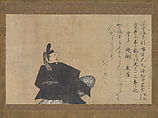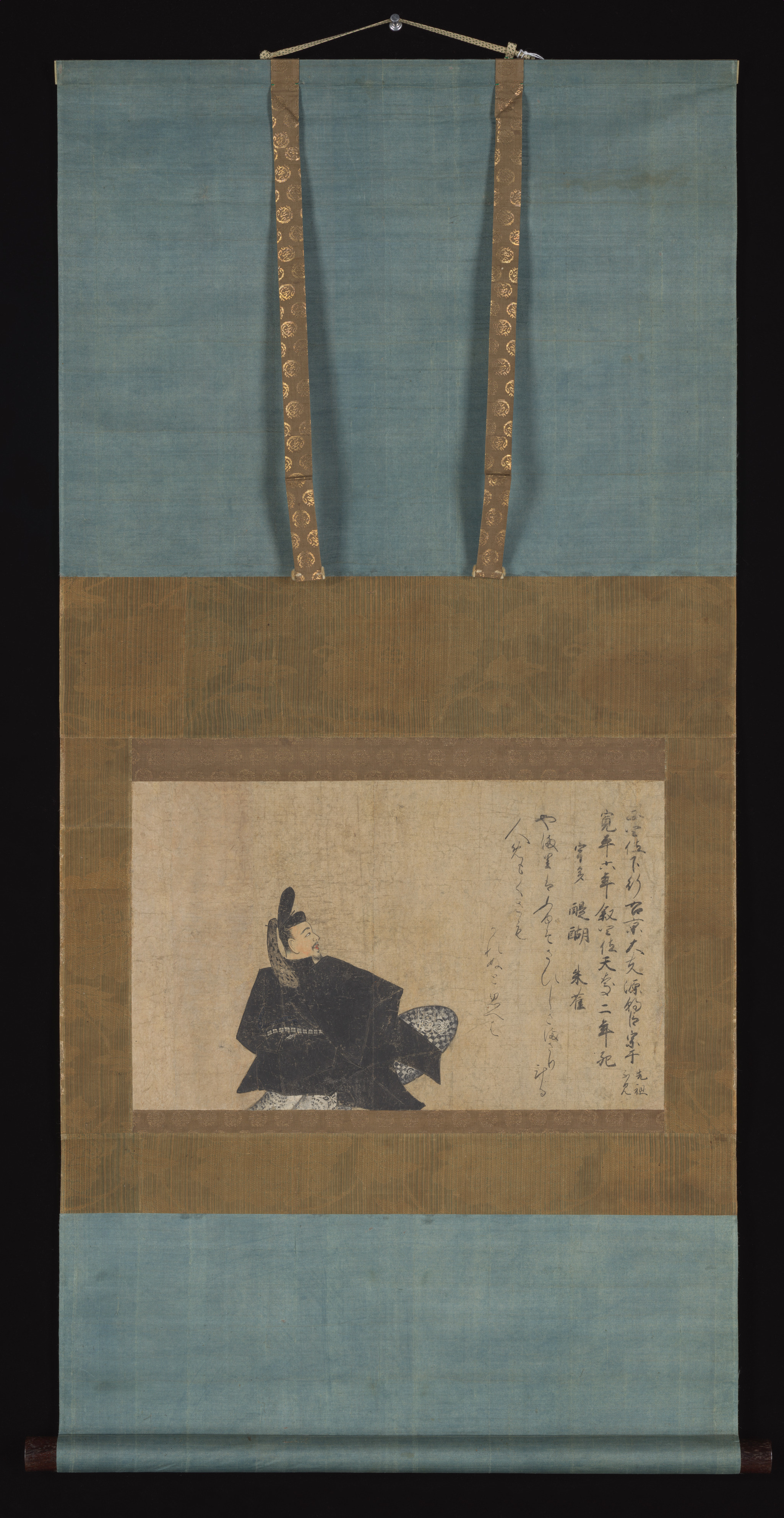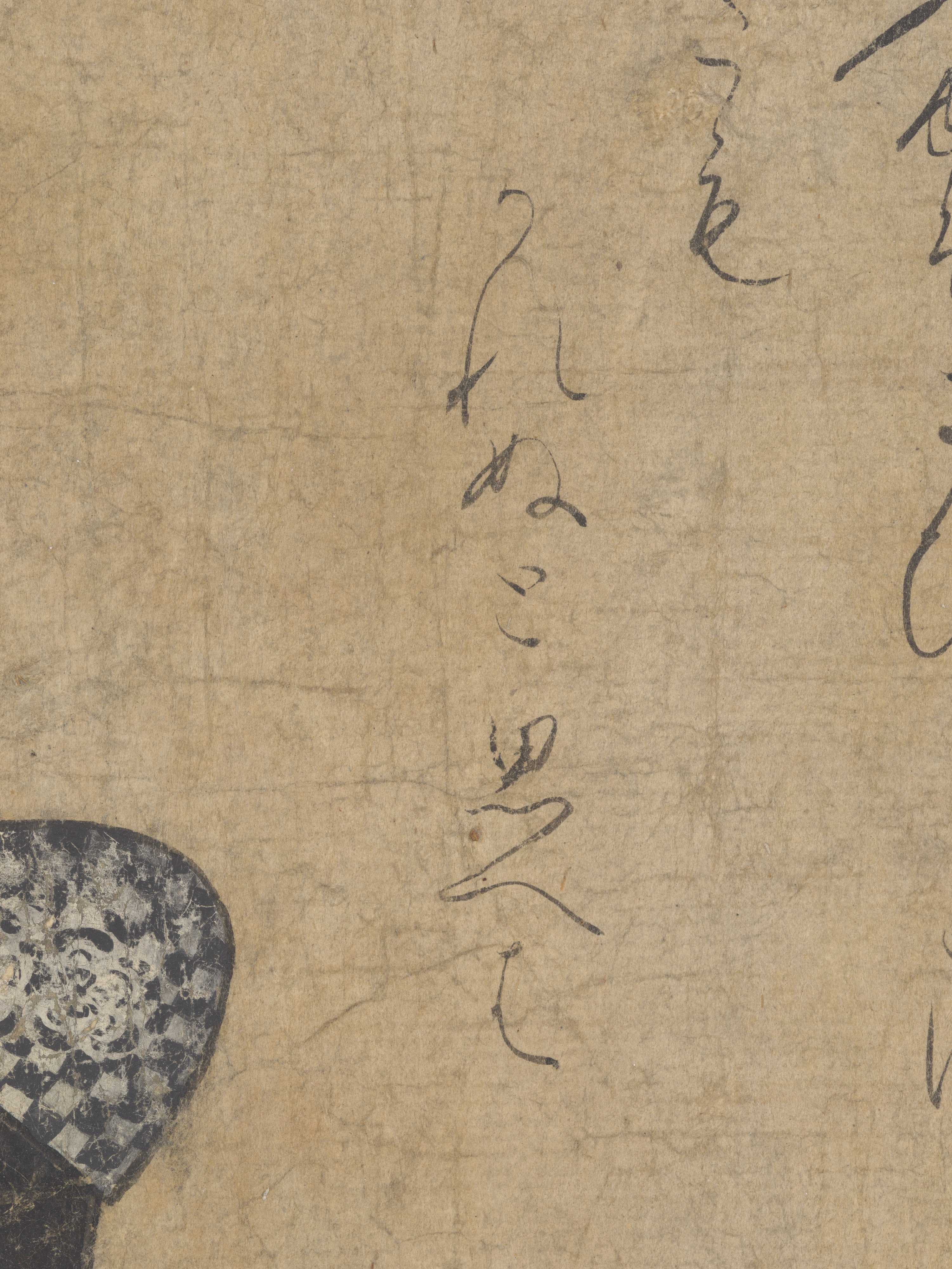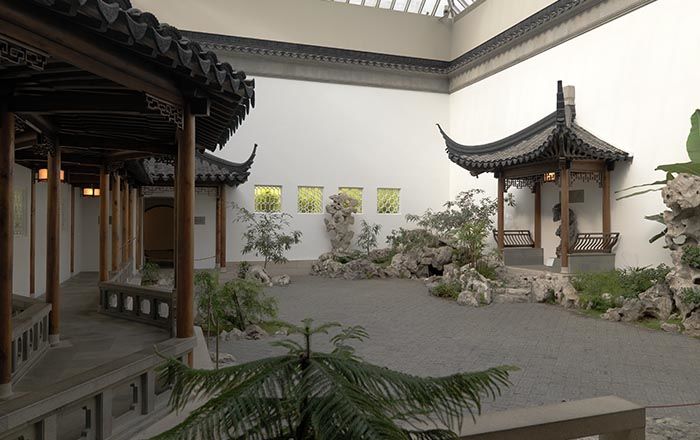Portrait of Minamoto no Muneyuki, from the “Fujifusa Version of the Handscroll of Thirty-Six Poetic Immortals”
Inscription traditionally attributed to Emperor Godaigo Japanese
Not on view
Court artists presented imaginary portraits of venerated poets alongside representative verses from their bodies of work. Shown here in traditional court robes is Minamoto no Muneyuki (died ca. 939), a courtier of the Heian period who is counted among the Thirty-Six Poetic Immortals—a roster of celebrated poets created in the early eleventh century. The name of the poet and a biographical note are written in kanji (at far right), while the waka appears in three vertical lines of kana. The latter reads:
やま里は ふゆぞさひしさ まさりける
人ぬもくさも かれぬと思へば
In this mountain village,
it’s winter when
my loneliness deepens,
and visits from friends
and grasses both dry up.
—Trans. John T. Carpenter
This image cannot be enlarged, viewed at full screen, or downloaded.
This artwork is meant to be viewed from right to left. Scroll left to view more.




